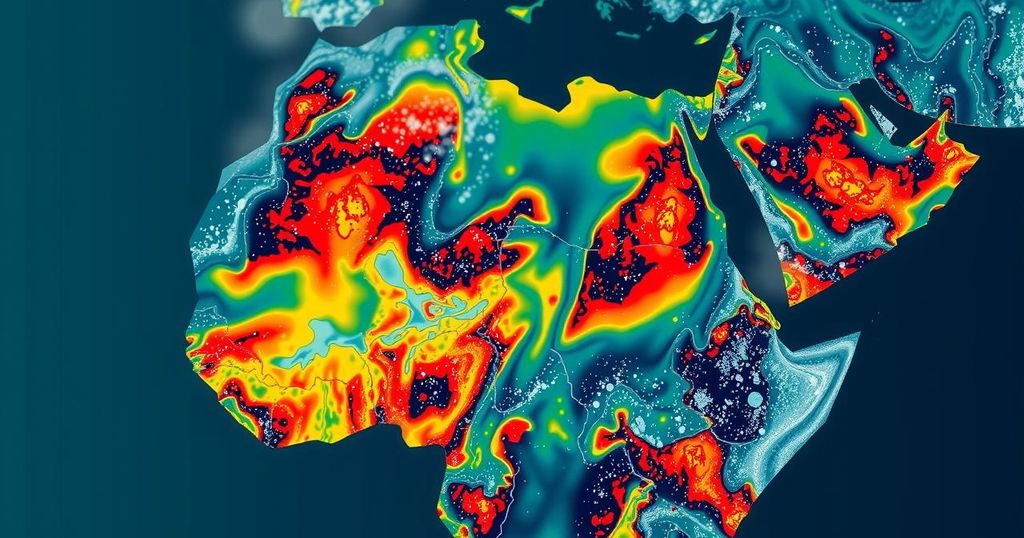International scientists confirm that climate change is worsening rainfall and flooding in countries like Cameroon, Chad, Niger, Nigeria, and Sudan, with global warming increasing rainfall intensity by 5-20%. This year’s floods have resulted in significant casualties and displaced millions. Without significant climate action, such extreme weather patterns may become the norm in these regions by the 2050s.
Recent studies conducted by an international team of scientists have deemed that devastating rains and subsequent floods affecting countries such as Cameroon, Chad, Niger, Nigeria, and Sudan in recent months have been exacerbated by human-induced climate change. According to the World Weather Attribution (WWA) group, the intensity of this year’s seasonal downpours in the Niger and Lake Chad basins has increased by approximately 5 to 20% due to global warming. The WWA has indicated that such severe rainfall patterns might become an annual occurrence if current warming trends persist. “Spells of heavy summer rainfall have become the new normal in Sudan, Nigeria, Niger, Cameroon, and Chad,” stated Izidine Pinto, a researcher at the Royal Netherlands Meteorological Institute. The catastrophic flooding this year has resulted in the deaths of around 1,500 individuals and the displacement of over one million others in West and Central Africa, as reported by the United Nations Office for the Coordination of Humanitarian Affairs (OCHA). The rains have overwhelmed various dams in Nigeria and Sudan, exacerbating the already dire situation. If global warming reaches a threshold of 2 degrees Celsius (3.6 degrees Fahrenheit), which could occur as early as the 2050s, such intense precipitation is projected to occur nearly every year in the affected regions, as per the WWA’s assessments. This situation has led to calls for increased investment in early warning systems and upgrades of dam infrastructure. Joyce Kimutai, a researcher at the Centre for Environmental Policy at Imperial College London, highlighted the disparity in responsibility for climate change, stating, “Africa has contributed a tiny amount of carbon emissions globally, but is being hit the hardest by extreme weather.” Ms. Kimutai emphasized the importance of the upcoming COP29 climate talks in November, urging wealthy nations to provide “meaningful finance” to assist those most affected.
The impact of climate change on weather patterns has become an increasingly critical area of study. In recent years, the correlation between rising global temperatures and extreme weather phenomena, such as heavy rainfall and flooding, has been substantiated by scientific research. This phenomenon is particularly evident in regions like West and Central Africa, where communities are facing acute and life-threatening weather-related challenges. The intersection of climate change and environmental policy is also prominent as nations prepare to address these issues at international summits such as COP29. Understanding these dynamics is essential for formulating strategies that can mitigate the impacts of climate change, especially in vulnerable regions.
The findings from international scientists underscore a significant and alarming trend: climate change is intensifying rainfall events, leading to severe flooding in various African nations, with grave humanitarian consequences. Moreover, the need for urgent action from wealthier nations is emphasized, as Africa, despite its minimal contribution to global carbon emissions, bears the brunt of climate-driven disasters. As the COP29 climate talks approach, the issue of equitable financial assistance for affected regions must be at the forefront of international discussions to curtail further devastation from climate-related events.
Original Source: www.usnews.com






